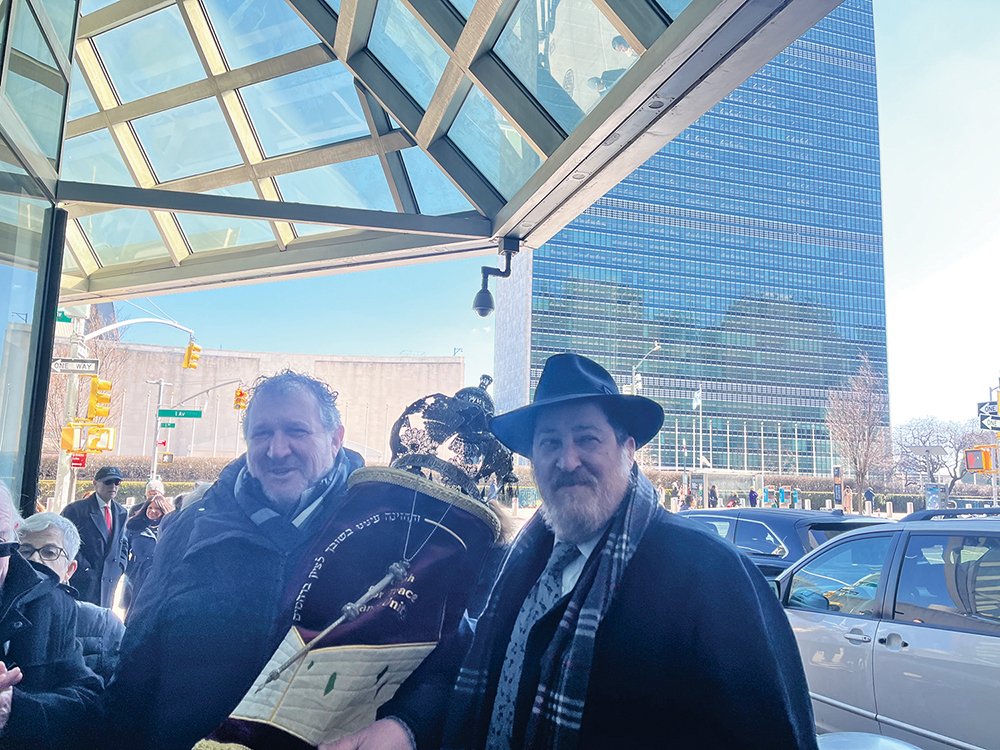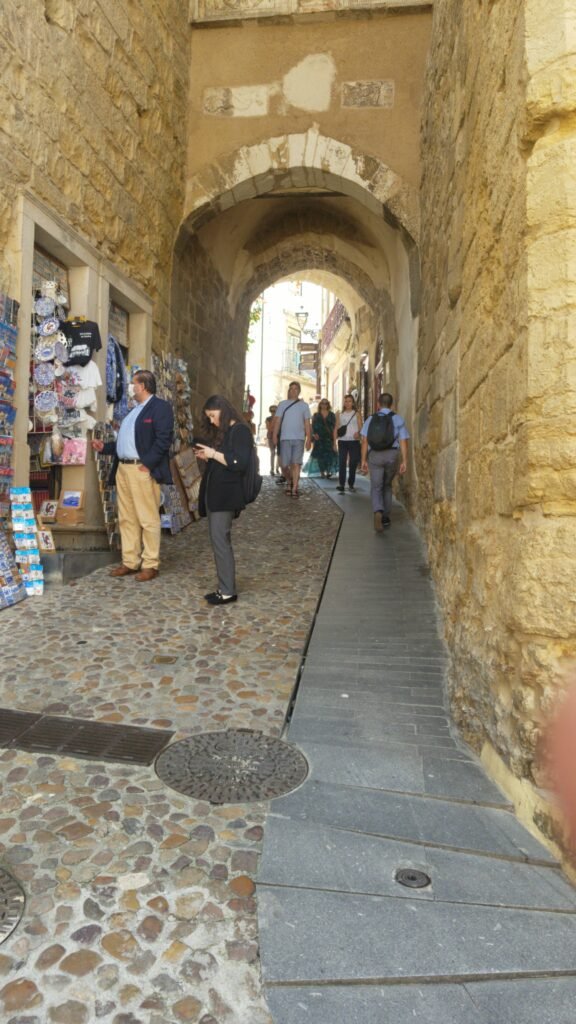Noahide Institute Sponsors New Torah for UN Headquarters
On March 3, a new Sefer Torah (Torah scroll) was presented to the United Nations, with the words “Unity and Peace” engraved on its cover. This special gift was initiated by Rabbi Yakov David Cohen of the Institute of Noahide Code, an officially recognized nongovernmental organization (NGO) accredited by the United Nations’ Economic and Social Council (ECOSEC). The event saw the participation of several prominent figures, including U.N. diplomats, NYC Commissioner of International Affairs Edward Mermelstein, New York City Councilmember Inna Vernikov, Joel Eisdorfer (chairman of NYC Mayor Eric Adams’ Jewish Advisory Council and his former Senior Adviser), NYPD Chief Richie Taylor (commanding officer of the Community Affairs Unit), Jewish NGO U.N. delegates, community rabbis, and local leaders.
The participants marched with the Torah from the U.N. General Assembly building across First Avenue to another U.N. building, where a kosher luncheon was held. During the luncheon, Rabbi Cohen welcomed the guests and elaborated on the mission of the Institute of Noahide Code. He explained, “My NGO promotes the Torah, not just for Jewish people, but for all people. When God gave the Torah to the Jewish people, He also provided seven fundamental laws and guidelines for humanity. Just as Jews are required to study and observe the Sabbath, non-Jews too have the responsibility, as well as the opportunity, to engage with the Torah. When the Messiah comes, there will be no need for money or power. The world will be filled with goodness, mitzvos (commandments), justice, peace, love, and respect for all nations and all people. Everyone will experience Hashem (God), everyone will serve Hashem, and we will witness the construction of the Third Temple in Jerusalem, the holy city and eternal capital of the Jewish people.”
Rabbi Yakov David Cohen led the Torah procession at U.N. Headquarters.
Referring to the Torah portion of the week, Tetzaveh, Rabbi Cohen stated, “The Torah is truth from the beginning to the middle to the end. The Torah is for all humanity, Jews and non-Jews alike. When the Torah was given at Mount Sinai, it was an extraordinary event: 613 commandments were given to Jews, while seven fundamental ones were given to non-Jews. Everyone has a role in the Torah. Jews have a more significant role, but everyone has a part to play. When the Torah was given, there was no echo. Everything stood still. Time stood still. It happened only once, and it will never happen again. Why? Because it permeated the entire world, and everyone experienced it.”
Rabbi Cohen also recalled a significant moment in 1990, when the Lubavitcher Rebbe stood on 43rd Street, which is also the site of the Isaiah Wall quoting the prophet Isaiah’s vision: “There will come a time when nations shall not learn war; they shall beat their swords into plowshares, and war will be no more.” The Rebbe remarked that the prophecy of Isaiah had begun to unfold when world leaders, Presidents Gorbachev and Bush, met to sign the nonproliferation treaty.

Rabbi Aharon Raskin, from Chabad of Downtown Brooklyn and Congregation Beth Abraham, played a significant role in establishing the Noahide Institute decades ago. He remarked, “This morning, we have dedicated a holy Torah at the United Nations. The word ‘Torah’ means lessons and instructions. It is also referred to as the book of light. The Rambam, originally from Spain and later a resident of Egypt, teaches that the ultimate objective of the Torah is the United Nations. The purpose of Torah is to foster peace and unity across the entire world. The well-known commentator Rashi, born in France, also teaches that the Torah was created for the sake of peace.”
Dancing with the Torah on the steps of U.N. Headquarters in Manhattan.
Rabbi Raskin continued, “The world was created for the Torah, not just for the Jewish people, but for all the nations of the world. Our beloved Rebbe instructed us to teach these Torah laws to all the nations. The act of bringing the Torah into the United Nations today is a powerful statement to the world—a clarion call declaring our dedication to spreading light: the light of righteousness, ethics, values, peace, and redemption, and ultimately, the light of the coming of the Messiah, which will bring peace to the entire world.”
Steven Cohn, a long-time legal advisor to the Noahide Institute, highlighted the seven “Mitzvos Bnei Noach” (Commandments for the Children of Noah) that the NGO promotes. These laws include: belief in one God, respect for all life, honoring the institution of marriage and family, respecting others’ property, establishing a legal system to ensure justice, and prohibiting blasphemy and idolatry.




